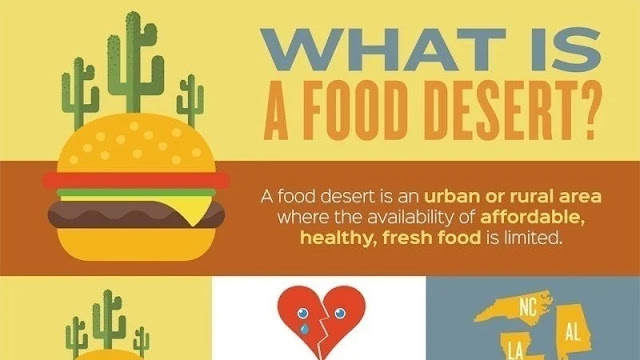Food is our most intimate and powerful connection to each other, to our cultures, and to the earth.
Veganism is a movement that is often associated with animal welfare and individual health, but it is also a means of promoting social justice and equity. In particular, the movement recognizes that low-income communities and communities of color face significant barriers in accessing healthy and affordable food options, which can make it difficult for individuals to adopt a vegan lifestyle. This article explores the intersection of veganism and social justice, focusing specifically on the challenges of food deserts and limited access to vegan options in low-income communities.
We will examine the concept of food deserts and food swamps and the impact they have on the ability of individuals in these communities to adopt a vegan lifestyle. We will also highlight the importance of promoting food justice and equitable access to healthy food options, and how veganism can be a powerful tool for creating a more just and equitable society.
What are Food Deserts?
Food deserts are defined as areas where people have limited access to healthy and affordable food. In many cases, these areas are predominantly low-income communities, which often lack grocery stores and fresh produce options. As a result, residents of these areas may have limited access to fresh fruits, vegetables, and other healthy foods, leading to health issues such as obesity, diabetes, and heart disease.
"Food justice means creating systems that ensure that everyone has access to healthy, affordable food options, regardless of race, class, or geography."
- Navina Khanna, Executive Director of the HEAL Food Alliance
The Impact of Food Deserts on Veganism
Food deserts can be a significant barrier to veganism. Even when individuals in these areas want to adopt a plant-based diet, they may not have access to the necessary fruits, vegetables, grains, and legumes to do so. Instead, they may rely on cheaper, processed foods that are high in saturated fats and sodium, and contain animal products. In addition, many fast-food chains offer cheap and readily available meat-based options, making it difficult for people to avoid animal products.
Limited Access to Vegan Options in Low-Income Communities
Even when grocery stores exist in low-income communities, they may not offer many vegan options. This can be due to a variety of reasons, such as a lack of demand or perceived lack of profitability. This can leave individuals with limited options, forcing them to rely on animal products or travel outside of their community to find vegan options. This can be especially challenging for those who lack access to transportation.
Solutions to Address Food Deserts and Limited Access to Vegan Options
There are several solutions to address food deserts and limited access to vegan options in low-income communities. One potential solution is to provide incentives for grocery stores to open in these areas. This could include tax breaks or other financial incentives. Additionally, community organizations can work to establish farmers' markets, community gardens, and food co-ops, providing fresh, locally grown produce to residents.
In addition, vegan advocacy organizations can work with restaurants and food providers to offer vegan options in low-income areas. This could include offering vegan meal kits, plant-based cooking classes, and nutrition education programs to teach people how to cook healthy vegan meals. Finally, there is a need to advocate for more plant-based options in schools, hospitals, and other institutions that serve low-income communities.
Resources for Access to Vegan Options
There are many resources available to individuals looking to adopt a vegan lifestyle in low-income communities. One such resource is The Food Empowerment Project, a non-profit organization that works to create a more just and sustainable world by recognizing the power of one's food choices. They provide resources for finding vegan options, such as their Chocolate List, which highlights companies that use ethically sourced cocoa beans.
The Vegan Outreach also provides resources on how to adopt a vegan lifestyle, including recipes, nutrition information, and tips on eating vegan on a budget. In addition, local organizations such as community centers, churches, and schools may offer programs and resources for adopting a plant-based diet.
Conclusion
In conclusion, veganism is not just about individual health and animal welfare but also about social justice. Food deserts and limited access to vegan options in low-income communities can be significant barriers to adopting a plant-based lifestyle. However, there are solutions available to address these issues, including incentives for grocery stores to open in these areas, establishing farmers' markets and community gardens, and advocating for policy changes that promote food justice and equitable access to healthy food options for all.
Veganism is a movement that recognizes the interconnectedness of various forms of oppression and seeks to create a more just and equitable world for all beings. By addressing the systemic inequalities that exist in our society, including those related to food access, veganism can become a powerful tool for promoting social justice and equity.
It is up to us as individuals and as a society to work towards building more just and equitable communities, and promoting access to healthy and affordable food options is a crucial step toward achieving this goal.
Resources
Food Deserts* – Food Empowerment Project (foodispower.org)
About - Vegan Outreach.

Comments
Post a Comment
We welcome your input!